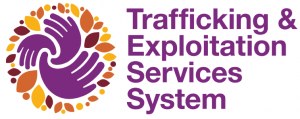Community Resources
People who have been sexually exploited are not just victims. Healing is possible. Surrounding a young person with non-judgmental, consistent supports can help to build up their confidence and resiliency. Below are some resources available for youth who are being sexually exploited, their families and service providers.
Jade Brooks talks about healing
"Healing is a messy, complicated process that's rarely linear. Girls need intense amounts of support, love and patience. Without someone around to understand and explain that their feelings are a "normal reaction to an abnormal situation," without practical resources such as food, shelter, and clothing, without constant reassurance that leaving was the right thing to do and that it's going to get better eventually, and without counseling or even psychiatric care for depression and PTSD, and the support of people who truly "get it", girls struggle, and the alternative seems more and more attractive every day."
- Rachel Lloyd,
Girls Like Us, Pg. 183
Canadian Human Trafficking Hotline
The Canadian Centre to End Human Trafficking has launched the Canadian Human Trafficking Hotline.
If you are a victim/survivor or believe someone else might be, call the hotline at 1-833-900-1010. The Hotline Response Advocates will connect callers to support and services and will also take tips, answer questions and forward information, when appropriate, to police. The hotline provides service in English and French and has translation services available in over 200 languages.
The hotline provides the following services:
- crisis response to people being trafficked
- referrals to social service providers and police (if requested)
- tip receipt and reporting
- general information provision
- tools and resources to build community responses to trafficking
Girls Against Trafficking and Exploitation (GATE)
GATE is a program that provides wrap-around support and preventative service for female-identifying young people aged 12-24 who are at-risk of, are currently, or are survivors of sexual exploitation/trafficking in rural Nova Scotia.
GATE also runs a support line that provides non-judgmental, confidential support after hours and on weekends. The GATE Outreach Line can assist with navigating a variety of systems as well as provide referrals to other programs and services.
To learn more: gate.efry@gmail.com
GATE Outreach Line: 1-833-625-GATE (4283)
Monday: 9am-1am
Tuesday: 9am-11pm
Wednesday: 9am-1am
Thursday: 9am-1am
Friday: 9am-1am
Saturday: 10am-1am
Sunday: 12pm-1am
Nova Scotia Transition and Advocacy for Youth (NSTAY)
NSTAY, a program of YWCA Halifax, provides youth who are being sexually exploited/trafficked with wraparound support and connects them with the services they need.
Youth of any gender between the ages of 13 and 24 can access the following through NSTAY:
- One-on-one peer support
- Case management
- Housing support
- Systems navigation
- Material assistance
- Accompaniment to appointments
- Court support
- Safety planning
- Employment and education counselling
To refer a young person to the NSTAY program: download the PDF and email it to: NSTAY@ywcahalifax.com
Support for parents and families
YWCA Halifax also provides support for parents and families of youth who are exploited in the sex trade or at-risk of becoming exploited. The Family and Community Outreach Worker helps parents, guardians, and families to understand the complexities of sexual exploitation and ways to respond and support their child at various stages.
Family case management can include:
- family-based safety planning
- providing emotional support and problem-solving strategies
- facilitating group-based support programs
- system navigation and advocacy
- parenting strategies
To connect with the Family and Community Outreach Worker, email NSTAY@ywcahalifax.com
Trafficking and Exploitation Service System (TESS)
The Trafficking and Exploitation Services System (TESS), is an inter-agency provincial partnership of over 140 community leaders and professionals working with children and youth engaged in the sex trade across Nova Scotia.
The primary purpose of TESS is to mobilize communities for action against the commercial sexual exploitation of children (CSEC) and youth. TESS does this in a number of ways:
- Education & Training – Sharing resources, practices and information about CSEC
- Collaboration – Providing opportunities for agencies to collaborate on the development of programs and services
- Coordinate Action – Identify the needs of victims and survivors, and work together to fill those needs
- Improve Systemic Responses – Work with decision-makers and legislators to identify and improve systemic responses within the Criminal Justice, Child Welfare, Education and Health Systems
YWCA Halifax has also developed a free training series for service providers, front line workers, and first responders which cover a wide range of topics related to CSEC. Modules 1-4 include introductory topics such as language, context, risk, identification, best practice in service provision and collaboration. Advanced Modules include advanced topics such as the Criminal Justice Process and Supporting Parents.
To connect, email TESS@ywcahalifax.com


